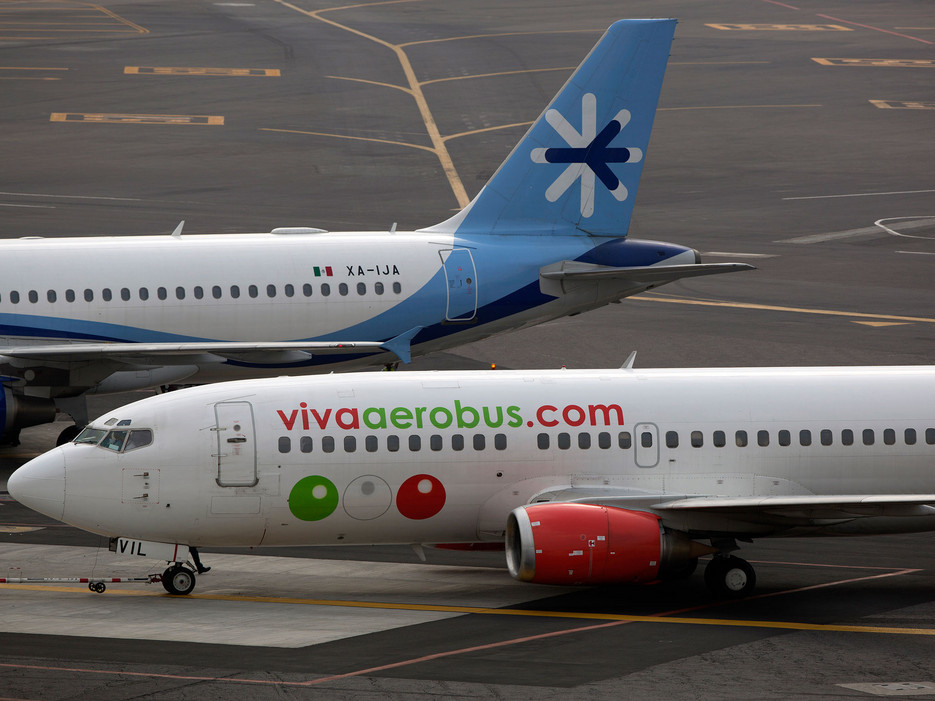The biggest beneficiaries of the new aviation agreement between the U.S. and Mexico might be the burgeoning low-cost Mexican airlines, such as Interjet, Volaris and VivaAerobus, according to airline industry analyst Bob Mann of R.W. Mann & Co.
The liberalized agreement would place no limits on the number of carriers that can serve any U.S.-Mexico city pair. Such conditions are a marked change from the existing aviation agreement between the two countries, which limits the number of carriers to two or three from each country per route.
Mexico’s senate must still ratify the agreement before it can take effect.
Intejet, which launched U.S. service in 2012, currently flies to five U.S. cities: Miami, New York, Las Vegas, Houston and San Antonio. Volaris launched transborder service in 2009 and flies to 20 U.S. destinations. VivaAerobus has had less success with transborder service, cutting several U.S. routes last year. It currently flies to Houston from Monterrey.
Midsize Mexican cities also could be big winners, Mann said.
“The limitations are such that secondary [Mexican] markets with the U.S. haven’t gotten the service that maybe they should have seen,” Mann said.
Under the existing rules, only two carriers from each country are allowed to service routes from the U.S. to most Mexican cities. Each country is allowed to designate three carriers for routes between any U.S. destination and 14 specific Mexican locales, including Acapulco, Cancun, Cozumel, Puerto Vallarta and the Los Cabos area. In addition, two carriers each are allowed to service Mexico City Airport and the capital’s alternative airport, Toluca.
Along with getting rid of those caps, the new agreement would not impose limits on route frequencies, according to the DOT.
Among U.S. carriers, JetBlue and Southwest are likely to benefit from the deal once it gets the final Mexican sign-off.
JetBlue currently flies to Cancun and Mexico City from several U.S. locations and has focused its international service on the Caribbean and Central America, serving 17 countries or territories in the region.
“We look forward to working with the DOT to remove the remaining barriers to entry that smaller carriers like JetBlue continue to face when expanding,” CEO Robin Hayes said in a statement the day the deal was announced.
Southwest, meanwhile, launched its international service in 2014 and now flies to Cancun, Los Cabos, Puerto Vallarta and Mexico City. In October, the carrier opened a five-gate international concourse at Houston Hobby.
“We are excited at what the accord could mean for our U.S.- and Mexico-based customers who would benefit from an increased service on Southwest Airlines,” the airline wrote in an email.
The agreement also comes as Delta is attempting to increase its current stake of less than 5% in Aeromexico to as much as 49%. The DOT said the new aviation agreement does not impact the ability of U.S. carriers to invest in Mexican carriers.
Source: travelweekly.com



